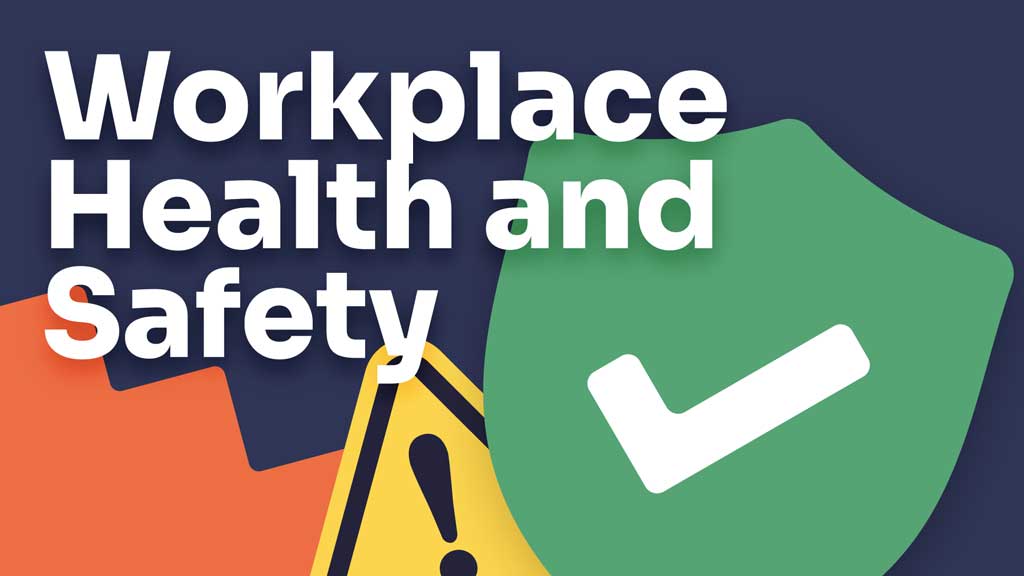
The new WHS legislation moves the focus from physical hazards to system of work. Reasonable adjustments are a key aspect.
Why are reasonable work adjustments important?
The concept of reasonable work adjustments is fundamental for accessible and inclusive work environments for people with disability, illness or injury. Every worker should be able to participate fully in all aspects of employment, with the highest level of protection from hazards and risks arising from work, so far as is reasonably practicable.
The aim is to minimise the impact of the injury, health problem or disability, so that the worker can fully participate in work-related programs and effectively undertake the inherent requirements of their job.
Supporting someone's ability to work through making reasonable adjustments can be effective in:
- Preventing deterioration of health, allowing workers with health problems to stay at work
- Enable workers to stay at work or return to work after injury
- Assist people with a disability to enter and stay in the workplace
What are reasonable adjustments?
Reasonable adjustments are any form of assistance or adjustment that is necessary, possible and reasonable to reduce or eliminate barriers at work. To make reasonable adjustments you must first understand the inherent requirements of the job including:
- What needs to be accomplished
- The inherent risks for undertaking the activity
- The person's ability to undertake their work
- What adjustments can be made to overcome barriers
Reasonable adjustment are personalised and should be tailored to the individual's requirements and circumstances. The worker will be best placed to understand their limitations, restrictions and can advise what adjustments are needed.
Adjustments can be long term, however they need to be reviewed regularly to make sure they remain relevant, effective, and manageable in the workplace.
Making reasonable adjustments
Where reasonable adjustments are required the Hierarchy of Control is a useful tool:
- Physical adjustments: Modifying the workplace / workstation to make it accessible, changing the workspace, providing additional equipment or tools.
- Work arrangements: Adjustments to work hour or duties such as part-time work, start or finish times, work from home, remote work or assistance in managing workloads.
- Adjustment to a role: Modify duties, adjust work methods, provide additional training or modify work patterns.
- Technology assistance: Provide new or modify existing equipment or tools.
- Attitudes of colleagues: Influence the attitudes of colleagues so they understand the reasons for providing adjustment and are able to support them. Provide information on how reasonable adjustments can support everyone within a workplace to be healthy, safe and productive at work.
What is reasonable in making adjustments is based on three considerations:
- How effective the adjustment will be in helping the worker at work or return to work
- How practical it is to make the adjustment and any disruption it will cause, particularly any health or safety impacts on other workers
- The financial cost of the adjustment and the capacity of the organisation to meet these costs
When considering what is reasonable the person conducting a business or undertaking (PCBU) must also meet the requirements of the:
- Work Health and Safety Act (WA) 2020,
- Equal Opportunity Act (WA) 1984, and
- the Disability Discrimination Act (Cth) 1992; which requires employers to make reasonable adjustments so a person with a disability is able to perform their inherent requirements of the job, unless this would cause 'unjustifiable hardship'.
It is important to consider how a request for reasonable adjustments will be handled, to ensure appropriate structures are in place, with effective communication and accountabilities to ensure the success of any changes.
For more information contact:
- Injury prevention: LGIS WorkCare Services Manager, James Larkin at health@lgiswa.com.au
- Injury management: Lauren Wojas, Principal Injury Management Consultant at lauren.wojas@lgiswa.com.au
- Work, health and safety: LGIS risk team or your regional risk coordinator